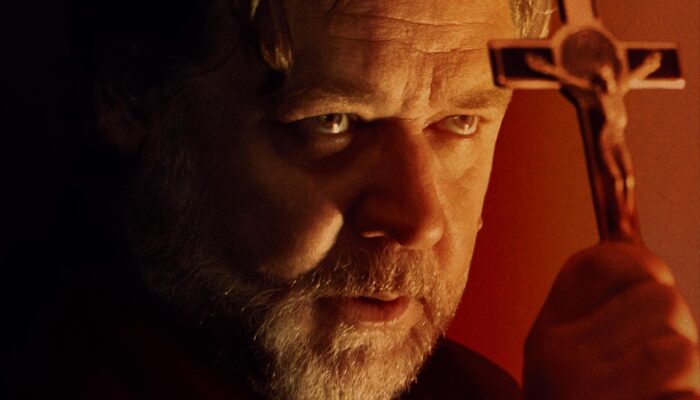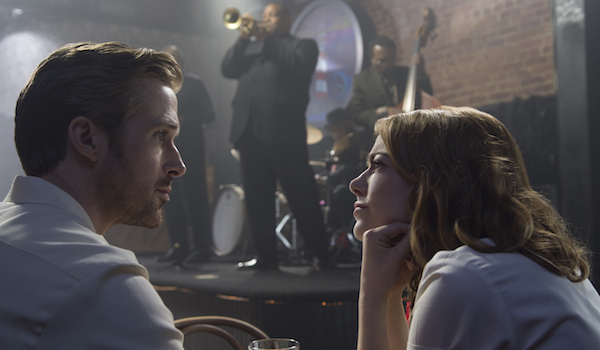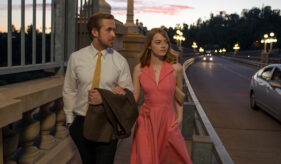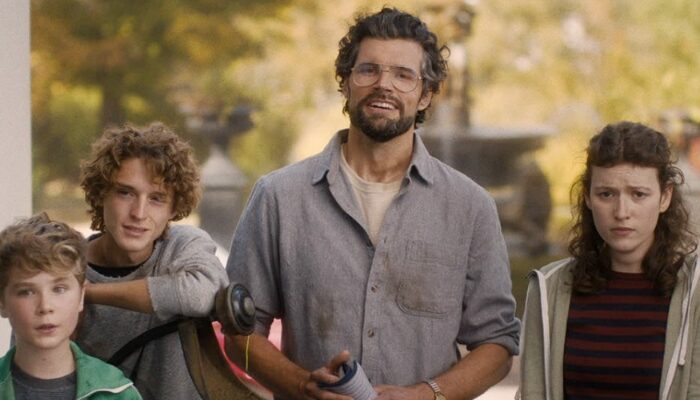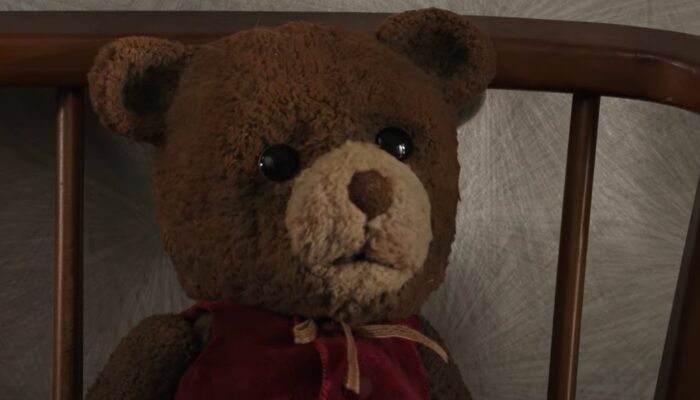Film Review: LA LA LAND (2016): A Lustrous Example of New Substance in an Old Formula
La La Land Review
La La Land (2016) Film Review, a movie directed by Damien Chazelle, and starring Ryan Gosling, Emma Stone, J.K. Simmons, Finn Wittrock, Sonoya Mizuno, Sandra Rosko, Rosemarie DeWitt, Christopher Aber, Callie Hernandez, John Legend, Candice Coke, Josh Pence, Jessica Rothe, Meagen Fay, and Ashley Caple.
From its opening and inventive dance number, La La Land seemed like a film out of place, belonging to a bygone era of Hollywood that was now extinct. As the film progressed, La La Land showed its true narrative colors. Those colors boomed across the screen with sentiment, aspirations, dreams, and harsh realities. La La Land was no mere song and dance musical romp. It was a celebration of life and all of its unpredictable and curious twists and turns.
When it began, La La Land presented as a generic love story with talented musician Sebastian (Ryan Gosling) who longed for the hay day of jazz and aspiring actress Mia (Emma Stone), who was lost in a sea of other aspiring actresses, longing to differentiate herself from her peers, and be noticed.
The musical elements and the winks at golden age film-making in La La Land elevated the mundane and made certain segments of the film a feast for the eyes. A reservoir of imagination went into the dance numbers presented in La La Land. Music and visuals (CGI or the environment of the scene) were dance partners during those moments in the film. They made magical moments between Sebastian and Mia the same for the viewer – the euphoria of burgeoning love was translated into a visual medium. La La Land didn’t need pyrotechnics or 3D to accomplish this feat. The drama of Sebastian and Mia’s storybook then turbulent relationship did the trick.
The old adage opposites attract was one of the defining dynamics of Sebastian and Mia’s relationship in La La Land. Each became ensconced in the other’s life, none more so than Mia into Sebastian’s world. His music became her own. The fact that this was not entirely reciprocated was at the heart of why their relationship eventually failed.
It was very strange, towards to fruitful end of their relationship, when Sebastian thought Mia was using his failures and foibles as a self-esteem fluffing, reflective tool. There was no basis for this supposition yet it was presented with all of the regretful gravity of a sad truth.
When Sebastian ventured to Mia’s home town to delivery the unexpected good news about her play and who had been in attendance, it was the type of selfless, glad-for-you act that would have saved their relationship if it had occurred sooner and more frequently.
Like Damien Chazelle’s Whiplash, the ending to La La Land made the film. Without the bittersweet ending to La La Land, the film would not have resonated and lingered in the viewer’s mind in the way that it did.
The way La La Land faded to black was the icing on the cake. The cake, in the beginning of the last scene, was Mia walking into the jazz club, seeing the club name (Sebs), the jazz artifacts on the walls, Sebastian, and the song that he sang – the very song that grabbed and held Mia’s attention five years before. When Sebastian sat down and pondered for a few moments what to play, his choice initiated one of the finest moments in the film.
Seeing the life that Sebastian and Mia could have had together was heart-breaking and sad. People always wonder if they had turned this way or that, what their lives would have been like. When Sebastian played that song, they both felt, if not saw, that other life where they were together, happy, and content. That song was the unrequited bookend to their relationship. It was almost as if Sebastian was saying he was sorry for his previous destructive behavior and lapses in judgement that damaged the bond and romance they’d stumbled into in the past. Sebastian was holding out his hands to Mia saying this, this is the life they we could have had and I am sorry. It was one of the saddest apologies-after-the-fact in movie history. The expression on Mia’s face said it all. It was Emma Stone’s best acting performance-to-date. Mia didn’t want to hear or think about what she was hearing and seeing. All emotion was drained from her face, resulting in her wearing a mask of abstract ambivalence and restrained reaction.
When Mia was about to leave the club and decided to look back, it was anticipatory. The viewer hoped it would happen but thought it might not. Sebastian and Mia’s shared look across the vast club space was analogous to the space that had grown between them and the personal growth each had gone through in their time apart. The small, quaint nod that Mia initiated was an acknowledgment that they had both done it. That they had both helped (or been apart of) the others dreams becoming a reality. It was an congratulatory nod. It was a nod that their relationship was amicably finished.
La La Land was a lustrous example of new substance in an old formula. Bravo.
Rating: 9/10
Leave your thoughts on this La La Land review and the film below in the comments section. Readers seeking more film reviews can visit our Movie Review Page, our Movie Review Facebook Page, and our Movie Review Google+ Page. Want up-to-the-minute notifications? FilmBook staff members publish articles by Email, Twitter, Tumblr, Google+, and Facebook.
Related Articles
FilmBook's Newsletter
Subscribe to FilmBook’s Daily Newsletter for the latest news!






